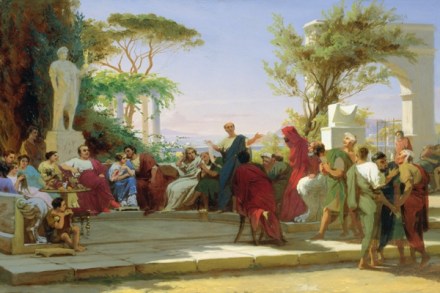Horace and Me, by Harry Eyres – review
After Zorba the Greek, here comes Horace the Roman. The peasant Zorba, you’ll remember from the film, releases uptight, genteel Alan Bates from his cage of repressed Englishness. Now it’s Horace, the Augustan lyric poet, releasing another repressed Englishman: Harry Eyres, Old Etonian scholar, Cambridge graduate, poet and author of the ‘Slow Lane’ column in the Financial Times. This charming, moving book calls itself ‘Life Lessons’, as if it were a general teaching guide for the reader. Really, though, it’s a personal guide for Eyres — who realises that the poet he first struggled to appreciate at school has valuable lessons to teach about love, wine and friendship. Now Eyres





